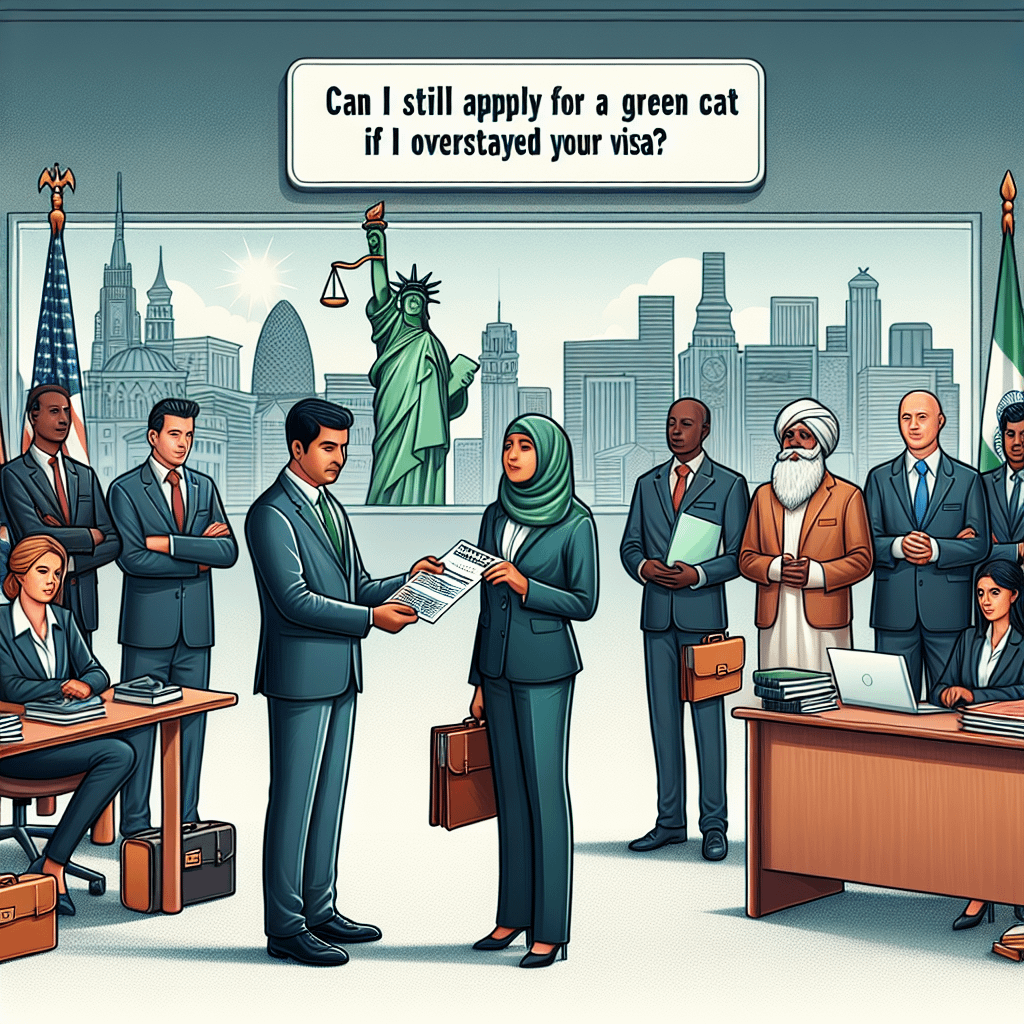Overstaying a visa in the United States is a common situation many people find themselves in, often due to circumstances beyond their control. It’s a stressful position to be in, especially when you’re left wondering about your long-term options to stay legally in the country. One of the most pressing questions might be: “Can I still apply for a green card if I’ve overstayed my visa?” Let’s delve into this topic with clarity and understanding.
Understanding Overstay and Its Consequences
First, let’s clarify what “overstaying your visa” means. Essentially, it refers to remaining in the United States beyond the period authorized by your visa. Visas such as Tourist Visas (B-2) or Work Visas (H-1B) come with specific expiration dates or durations of stay stipulated by U.S. immigration authorities. If you overstay, you become “out of status,” which can have serious consequences, like being banned from re-entering the U.S. for a period of time.
The good news is that not all hope is lost if you’ve overstayed. Depending on your circumstances, there may still be pathways to apply for a green card, also known as lawful permanent residency.
Immediate Relatives of U.S. Citizens
One of the most forgiving aspects of U.S. immigration law is its treatment of “immediate relatives” of U.S. citizens. If your spouse, child (under 21 years of age), or parent is a U.S. citizen, you might still be eligible to apply for a green card despite your visa overstay. These individuals can file a Petition for Alien Relative (Form I-130) on your behalf, which often leads to your eligibility for an “adjustment of status” (Form I-485) allowing you to apply for a green card without having to leave the country.
This pathway is less affected by visa overstays because immediate relatives are considered top priority in immigration law, recognizing the importance of family unity.
Protection through Other Legal Mechanisms
Another potential avenue is if you’re eligible for protection through asylum or other related mechanisms like the Violence Against Women Act (VAWA) or U Visa for victims of crimes. These provide special considerations for those who have suffered persecution or significant harm and can sometimes allow for adjustment of status despite visa overstays.
Waiver of Inadmissibility
In certain situations, if you’ve overstayed but aren’t an immediate relative, a Waiver of Inadmissibility might come into play. This waiver can forgive overstay penalties if you can demonstrate that your departure from the U.S. would cause extreme hardship to a U.S. citizen or lawful permanent resident spouse or parent. It’s worth noting that the approval for such waivers tends to be complex and heavily dependent on individual circumstances.
Navigating Marriage and Employment Routes
People often wonder if getting married to a U.S. citizen after a visa overstay will solve their immigration issues. While marriage to a U.S. citizen can indeed open the door for adjustment of status, it is crucial to establish the sincerity of the relationship and ensure that it doesn’t look like a marriage of convenience solely for immigration benefits.
As for employment-based green card applications, they’re generally more restrictive concerning visa overstays. It is challenging to adjust status in the U.S. through an employment route without first resolving issues related to the overstay.
Tips for Handling Visa Overstay Issues
1. Document Everything: Keep meticulous records and proof of your overstay reasons, especially if driven by circumstances like illness or family emergencies.
2. Consult an Immigration Attorney: Visa overstays pose complex legal challenges, and obtaining expert legal advice can help navigate options specific to your situation.
3. Avoid Exiting the U.S.: Exiting the U.S. after an overstay can trigger significant re-entry bans. Staying in the country while applying for adjustments is generally safer but consult with a professional about your particular situation.
Overstaying a visa can complicate your ability to build a life in the U.S., but it’s important to remember that options still exist. The key is to be informed, proactive, and prepared to seek counsel that can guide you to a favorable resolution.








